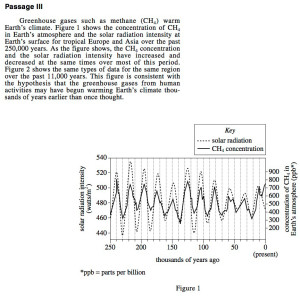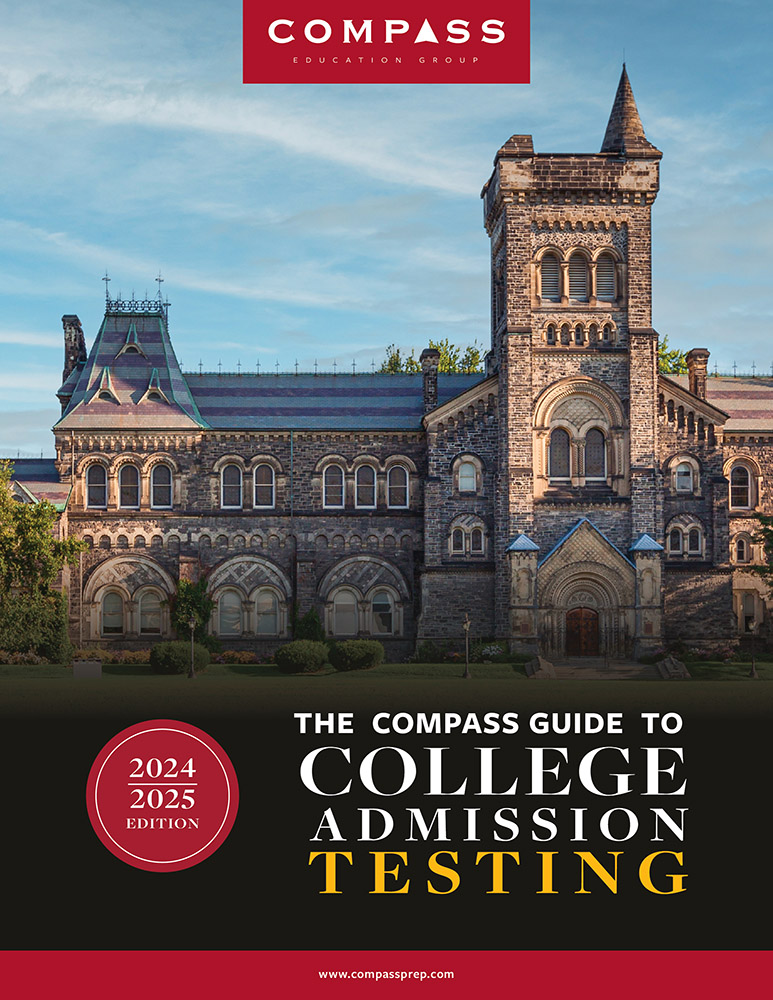
If you’re a student taking the ACT for the first time, you might be worried about the ACT Science Test. Of all the tests that make up the ACT, the Science Test feels the most unfamiliar, technical and specialized. To make matters worse, it’s the last multiple-choice section of a four-hour test, so test fatigue can also come into play.
But for those who are convinced that the ACT is not for them because science is their kryptonite, it may be time for a paradigm shift.
What kind of science is on the ACT?
The ACT Science Test consists of six-to-seven “passages,” each on a different scientific topic. The topic can be related to biology, chemistry, physics…basically anything under the sun (and beyond the sun, for that matter). I use the word “passage” loosely, because while the ACT uses this designation (e.g. “Passage I”), most of the passages are just short paragraphs describing a scientific experiment or study. They are not like the long, dense passages found in the reading section of the ACT. Most science passages are also accompanied by multiple graphs, tables, and/or charts.
If you pick up an ACT exam and start flipping through the Science Test, it can look daunting: strange looking graphs related to experiments on the Heliconia metallica or studies on the orbital periods of comets. It’s easy for a student to assume she won’t do well on this test because she’s never come across the Heliconia metallica in her science classes, and she hasn’t studied astronomy.
What does the ACT Science section really test?
Does the ACT really test students on their knowledge of science? Not really. Consider the following example from a practice ACT exam. A student is given a dense paragraph about greenhouse gases and solar radiation intensity, along with two figures. Figure 1 is shown below (click the photo to expand).
 Now consider the following question:
Now consider the following question:
19. One solar radiation cycle is the time between a maximum in the solar radiation intensity and the next maximum in the solar radiation intensity. According to Figure 1, the average length of a solar radiation cycle during the past 250,000 years was:
A. less than 15,000 years.
B. between 15,000 years and 35,000 years.
C. between 35,000 years and 55,000 years.
D. greater than 55,000 years.
I have never in my life needed to know what a solar radiation cycle was, nor am I conversant on solar radiation intensity. But it doesn’t matter. The question tells me everything I need to know to answer it correctly. I simply refer to Figure 1, find one maximum point, say at 240,000 years ago, and then find the next maximum point, at about 219,000 years ago, and find the difference: 21,000. I do a quick visual check to confirm that the cycle I chose looks about average. It does. Therefore, the answer is B.
What skill mastery can the student demonstrate?
Have I proven my expertise on the subject of solar radiation? Definitely not. I have demonstrated that I can read and interpret data from graphs and charts and that I can do some basic math. While you may run into questions that are more difficult, nuanced, or complex than the example I have given, they will test similar skills.
Very little prior science knowledge is needed to do well on the ACT. When the ACT does call for prior knowledge, it’s typically something very basic that the vast majority of high school students will know (e.g. knowing that H2O is water). This test is more about understanding and interpreting information you’re given and understanding the nature of scientific experiments. It may have very little to do with what a student is actually learning in his or her science classes at school.
For this reason, I find that students are often surprised at their initial performance on the ACT Science Test. Students who are acing AP Bio may do poorly, while students who aren’t taking a science class at all may do surprisingly well.
In either case, performance on the ACT Science Test can be improved, and it doesn’t require hitting those science textbooks—it requires time management, strategy, and practice! To schedule a practice test and learn more about how you can prep for the ACT, contact us.

